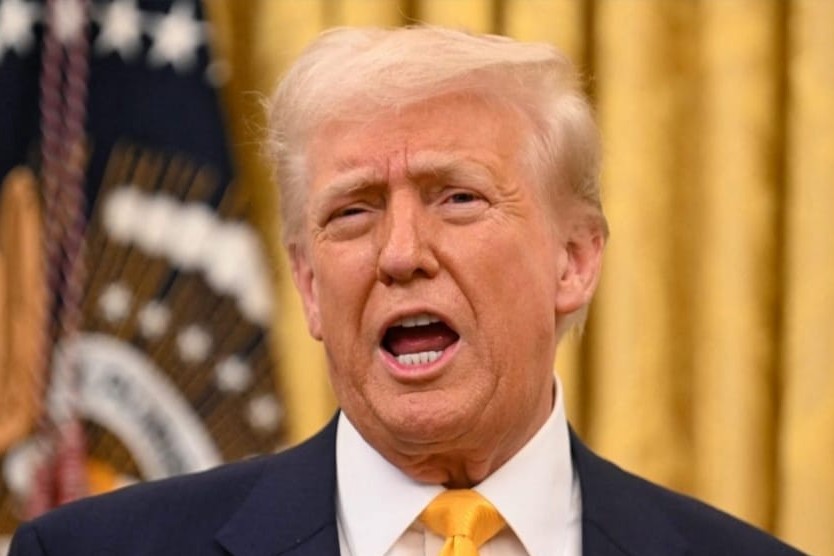
By Mustak Zahid
DHAKA: US President Donald Trump has once again ignited controversy by criticizing a $29 million US grant to Bangladesh, questioning its legitimacy and alleging financial mismanagement. Speaking at the Governors Working Session at the White House, Trump expressed outrage over the allocation, particularly highlighting that the funds were awarded to a firm he described as obscure, with only two employees.
“They got $29 million. They got a check. Can you imagine? You have a little firm, you get $10,000 here, $10,000 there, and then we get $29 million from the United States government. There are two people working in that firm,” Trump remarked, casting doubt on the credibility of the initiative. “I think they’re very happy, they’re very rich. They’ll be on the cover of a business magazine pretty soon.”
Trump did not stop at Bangladesh; he also took aim at a $21 million grant allocated to India for voter turnout efforts, sarcastically remarking, “What about us? I want voter turnout too.” His comments reflect growing scrutiny over US foreign aid expenditures, with critics questioning whether taxpayer money is being funneled into projects with limited accountability or tangible benefits.
The controversy intensified after the US Department of Government Efficiency (DOGE), under the new administration, announced a sweeping cancellation of several foreign-funded projects. On February 16, DOGE confirmed that the Bangladesh grant, along with the India voter turnout initiative, a $20 million fiscal federalism program, and a $19 million biodiversity conservation effort in Nepal, had all been terminated.
Trump’s remarks are consistent with his long-standing skepticism toward international aid programs, often criticizing such allocations as wasteful and mismanaged. His administration had previously attempted to cut foreign assistance, arguing that US taxpayer money should primarily be used to address domestic priorities.
While the former president’s stance has found support among his base, proponents of foreign aid argue that such funding is essential for fostering diplomatic relations, stabilizing fragile democracies, and maintaining US influence abroad. The Bangladesh grant, for example, was intended to “strengthen the political landscape,” but Trump’s comments suggest a belief that such funds are being misused or distributed without adequate oversight. As debates over foreign aid continue to dominate discussions in Washington, Trump’s statements have reignited the broader conversation on the effectiveness and accountability of U.S.-funded initiatives abroad. Whether this will lead to further cuts in international programs remains to be seen, but for now, his remarks have put Bangladesh and other recipients of US aid under a fresh spotlight.



